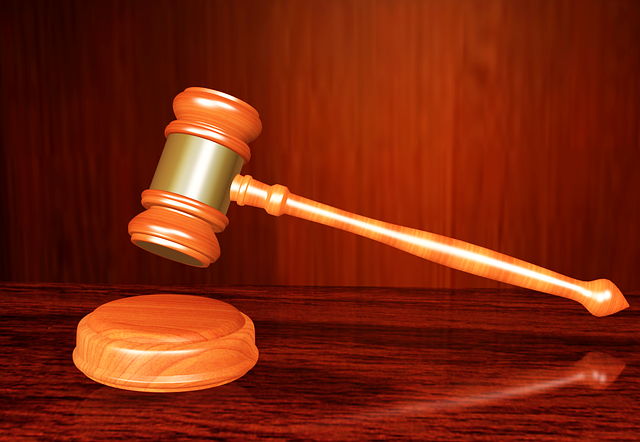Healthcare law firms act as navigators in intricate legal territories, specializing in interpreting and enforcing laws for hospitals, pharmaceutical companies, and more. The burden of proof is a critical factor in shaping legal outcomes, especially in medical malpractice or product liability lawsuits. This principle requires patients and providers to navigate technical details, with plaintiffs needing compelling evidence to demonstrate harm from deviation from the standard of care. Understanding how the burden of proof affects verdicts is crucial for navigating complex cases involving white-collar crimes and economic violations. Law firms with a strong track record employ strategic advocacy, gathering comprehensive evidence, interviewing expert witnesses, and making persuasive arguments to secure favorable outcomes.
“In navigating the complex healthcare landscape, understanding the role of specialized law firms is paramount. This article delves into the world of healthcare legal practices, exploring their expertise and impact on patient-provider dynamics. We dissect the intricate ‘Burden of Proof’ in healthcare litigation—a factor that significantly influences verdicts.
From defining the legal challenges faced by patients and providers to offering strategies for advocacy, this comprehensive guide highlights how the burden of proof affects outcomes, providing insights crucial for both professionals and individuals navigating healthcare legal matters.”
- Understanding Healthcare Law Firms: Their Role and Expertise
- The Legal Landscape: Key Challenges Faced by Patients and Providers
- Burden of Proof in Healthcare Litigation: A Comprehensive Analysis
- Strategies for Effective Advocacy: Navigating the Impact on Verdicts
Understanding Healthcare Law Firms: Their Role and Expertise
Healthcare law firms play a pivotal role in navigating complex legal landscapes within the healthcare industry. Their expertise lies in interpreting and enforcing laws related to medical practices, patient rights, insurance regulations, and more. These specialized lawyers are equipped to handle a wide range of high-stakes cases, ensuring that their clients—from hospitals and doctors to pharmaceutical companies and even the philanthropic and political communities—are protected under the law.
One critical aspect that significantly influences legal outcomes in healthcare is the burden of proof. In many cases, determining liability and reaching verdicts hinge on presenting substantial evidence and meeting strict legal standards. This dynamic, especially in medical malpractice or product liability lawsuits, can be a game-changer, as it demands meticulous attention to detail and a deep understanding of both legal principles and medical practices.
The Legal Landscape: Key Challenges Faced by Patients and Providers
The legal landscape within healthcare is complex, presenting unique challenges for both patients and providers. One significant aspect that influences outcomes is the burden of proof—the responsibility to present compelling evidence to support a claim or defense. This principle plays a pivotal role in shaping verdicts, especially in medical malpractice cases where proving negligence can be intricate. For patients seeking justice, the burden often seems overwhelming, requiring them to navigate a maze of technical details and scientific data related to their treatment.
Healthcare providers also face challenges in adhering to evolving regulations while managing the care they deliver. Balancing these responsibilities is crucial for maintaining patient trust and ensuring quality healthcare services. Additionally, the legal framework must accommodate the diverse needs of corporate and individual clients, fostering a system that encourages responsible medical practices while avoiding unnecessary indictment.
Burden of Proof in Healthcare Litigation: A Comprehensive Analysis
The burden of proof is a fundamental concept in healthcare litigation, significantly influencing the outcomes of cases, especially in jury trials. In medical malpractice suits, for instance, plaintiffs bear the onus of presenting compelling evidence to prove that a healthcare provider’s actions or omissions deviated from the acceptable standard of care and directly caused harm to the patient. This strict requirement is designed to ensure fairness by demanding robust and reliable proof before reaching a verdict.
Understanding how the burden of proof affects verdicts is crucial, particularly when navigating complex cases involving white-collar and economic crimes. In such scenarios, where substantial financial losses or regulatory violations are at stake, securing winning challenging defense verdicts demands meticulous preparation and a deep understanding of medical principles. The dynamics of healthcare law continue to evolve, making it imperative for both plaintiffs and defendants to stay informed about the shifting burden of proof standards that could make or break their cases.
Strategies for Effective Advocacy: Navigating the Impact on Verdicts
Healthcare law firms need to master strategic advocacy to achieve favorable verdicts. One key factor that significantly impacts outcomes is the burden of proof. In civil cases, plaintiffs typically bear the burden of presenting substantial evidence to support their claims, while defendants must rebut this evidence. Understanding and effectively navigating this dynamic is crucial for success.
A firm with an unprecedented track record in healthcare litigation recognizes the importance of gathering comprehensive evidence, interviewing expert witnesses, and presenting persuasive arguments throughout all stages of the investigative and enforcement process. By doing so, they can ensure a complete dismissal of all charges, demonstrating their prowess in managing complex legal matters and securing positive outcomes for clients.
Healthcare law firms play a pivotal role in navigating complex legal landscapes, addressing key challenges faced by patients and providers alike. By understanding the intricate dynamics of healthcare litigation, these experts can provide strategic guidance that significantly influences verdict outcomes. The analysis of the burden of proof is a game-changer, enabling advocates to formulate robust strategies that enhance their cases’ success. Ultimately, the impact of this legal principle on verdicts underscores the necessity of competent healthcare law firms in ensuring justice and fair resolutions.






